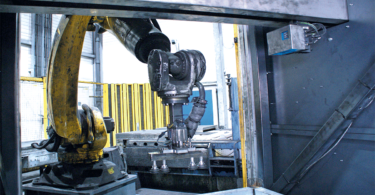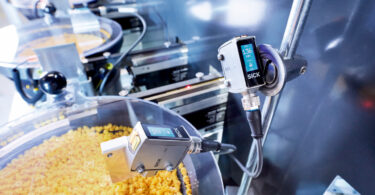Discover how the new MARSIC280 analyzer and digital services benefit the shipping industry
We are living in turbulent and eventful times; the shipping industry is not exempt from the gales. For example, the International Maritime Organization (IMO) regulation for the reduction of sulfur oxide emissions presents new challenges for shipping companies and the supply industry. That’s when it’s good to have a partner on board who understands your trade and is continuously coming up with new innovations. SICK has expanded its emissions measurement technology for the high seas with its new MARSIC280. It also offers its customer a closely-knit, global service network and innovative remote solutions.
The on-board emissions measurement technology is important for operating the ship in accordance with the IMO guidelines. The entire MARSIC portfolio is approved by the seven largest classification societies, which represent over 90% of the world's commercial fleet. Furthermore, the MARSIC300 is the only maritime emissions measurement device certified by the Japanese Ministry for Land, Infrastructure, Transport and Tourism. Adherence to the MARPOL regulations is now being checked in all ports with high technology and great personnel costs. When using the gas analyzers from SICK, you will always find yourself in safe harbors.

A new milestone is reached
With its MARSIC200 and MARSIC300, SICK offers a unique product portfolio that is worlds apart from the competition. The two product families differ primarily in their measurement technology. The MARSIC200 was the first to be developed with its dependable cold/dry extractive technology. The MARSIC300 is a compact complete system that is the only one among its international competitors to feature a hot/wet extractive technology for process gas and on-board emissions monitoring.

The newest product, the MARSIC280, is a further development of the MARSIC200 based on cold/dry extractive measurement technology. The new “small” MARSIC is specifically tailored to the requirements of scrubber applications and uses the reliable filter technology of the MARSIC300.
The MARSIC280 is easy to integrate. The analysis and sample preparation units are pre-assembled on a mounting frame and connected accordingly. There is also the option for a new instrument air preparation unit to be used for protection against contamination and higher measurement reliability.
The MARSIC280 analyzer is even more economical because it enables sequential measurements on two stacks. Other optimizations include the ability to reduce maintenance and facilitate troubleshooting with a modular assembly of components. This combination offers the crew the possibility to intervene quickly and thus reduce downtime.
Maritime services are innovative and always right on course
The devices in the MARSIC product family are low maintenance and characterized by their durability. They are easy for the crew to properly employ at the right moment with suitable training. This provides a significant benefit to ship operators.
But this is just a small part of the services on offer. For many years now, SICK has been offering a sophisticated maritime service package that doesn’t end in the engine room. To enable us to meet the global needs of our customers, SICK has set up more maritime service hubs. Qualified staff from SICK and its partners will be available to you at these locations to assist with preventive maintenance, technical support, problem solving, and other services related to measurement technology.
In addition, digital, cloud-based solutions offer maximum transparency, ensure adherence to emissions guidelines, and increase efficiency to optimize operating costs.
https://www.youtube.com/watch?v=PTwQ9tJnyFI
SICK’s live emission compliance monitor is a digital solution to visualize live data of the vessel’s emission monitoring device (MARSIC). Within the application, the measurement data is combined with other data streams, such as vessel positioning as well as ECA and local emission regulations to track the compliance status of your vessel(s). With the data being uploaded to the cloud, the fleet management onshore is also able to gain full knowledge about the compliance status, device condition, live and historical emission data of the complete fleet, and further information such as the scrubber efficiency. This data helps to save operational costs.
Want to learn more about SICK solutions for the maritime industry? Contact a SICK representative today!






